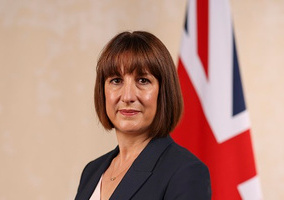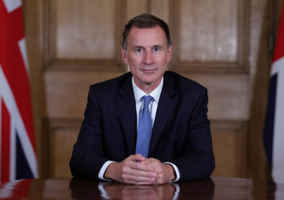Rachel Reeves has delivered her first budget since Labour formed a government following the general election, in which she announced £40bn-worth of tax increases.
Reeves announced several changes following lobbying by charities including Shelter, the Joseph Rowntree Foundation and Trussell.
The chancellor said she would not increase national insurance, VAT or income tax for working people.
However, as trailed before the budget, employers’ national insurance contributions will increase by 1.2 percentage points to 15% from April 2025.
She also announced increases to capital gains tax, air passenger duty, and stamp duty land tax charge for second homes.
Reeves announced plans to modernise HMRC and recruit more staff to the tax authority.
She also announced a 2% efficiency savings target for all government departments and £1.3bn in additional local government funding.
Reeves confirmed the government’s announcement yesterday that minimum wage rates for those aged over 21 would increase by 6.7% to £12.21 per hour from April 2025 and larger increases for younger workers.
And she repeated the government’s plans to remove tax breaks for private school fees and to remove business rates relief for the organisations from April next year.
Tax rises could lead to ‘flood of charitable giving’
Bob Collins, chief executive of TrustBridge Global, said rises in capital gains tax could lead to some investors “looking for ways to beat the tax trap and divest their assets” before April next year.
He said: “As charities are exempt from capital gains tax, charitable giving offers savvy investors, and the beneficiaries of their wills, a way to mitigate their exposure, and we will likely see a flood of charitable giving from investors, benefitting the UK’s charity sector.
“This is especially pertinent given the extension of the inheritance tax threshold to 2030, which will drag more households into the nil-rate band.
“This will also provide a breath of fresh air for the UK’s charities, many of which would otherwise be hamstrung by employers’ national insurance contribution rising to 15% and the secondary threshold being reduced to £5,000, as many charity employees earn low wages.
“However, it is still likely that costs will be passed on to staff via smaller wage rises, wage cuts, or reduced job opportunities, which will impact charities and businesses alike.”
NGOs disappointed by lack of aid spending uplift
Reeves did not announce an increase to Official Development Assistance (ODA) funding, despite lobbying from international development charities to do so.
NGO umbrella body Bond said the government had cut the aid budget in real terms, with spending expected to drop by £2bn to £13.3bn in 2024-25 before rising to £13.7bn in 2025-26.
Gideon Rabinowitz, director of policy and advocacy at Bond, said: “By refusing to renew the top-ups made by the previous government to offset the rising costs of housing asylum seekers in the UK, UK aid will plummet this year.
“We must support asylum seekers, but funding should come from a dedicated budget – not at the expense of other marginalised communities around the world.”
Hannah Bond, co-CEO of ActionAid UK said she was “profoundly disappointed” at the lack of uplift.
“For a government that came to power pledging to reset its global relationships and place tackling climate change at the core of its foreign policy, this statement is an indication it plans to do anything but.
“After the previous government took a wrecking ball to projects aimed at tackling gender inequality, Labour is following in their footsteps by further abandoning women and girls when they need it the most.
“We urge them to rethink this decision and consider what it signals to the rest of the international community.”
Children’s charities: ‘Tweaks rather than the systemic change that is needed’
The Children’s Charities Coalition – which includes Action for Children, Barnardo’s, the National Children’s Bureau, NSPCC, and the Children's Society – said: “The needs of children and families have for too long been overlooked.
“Whilst there are welcome announcements in today’s budget – including extra funding for social care and SEND provision, and action to reduce the burden of debt deductions in universal credit – these are tweaks rather than the systemic change that is needed.
“It is disappointing that the government has not taken this opportunity to invest more strategically in services for children.
“Piecemeal, sticking plaster approaches to funding have got us to the crisis point we now find ourselves in.
“Recent decades show that only strategic investment in prevention and early intervention can tackle the root causes of the high levels of children entering care and the epidemic of poor mental health amongst children and young people.
“It is critical that these first steps are built upon at the multi-year spending review in spring 2025.”
£2m for holocaust education
Reeves announced £2m for holocaust education including charities such as the Holocaust Education Trust.
The Holocaust Education Trust posted on social media: “This is fantastic news. We are hugely grateful to the chancellor for recognising our work.
“We are at a crucial juncture as Holocaust survivors become fewer and frailer, and the importance of ensuring their testimony is preserved and accessible for generations to come cannot be underestimated.
“With the surge in antisemitism today and as the Holocaust moves from living history to history, this work is vital and urgent.”
Reeves also confirmed the government’s plan to continue to give £3bn per year to support the war effort in Ukraine for “as long as it takes”.
Daniel Reiner, director of charity the Rapid Relief Team, which is providing humanitarian relief in Ukraine, said: “While maintaining financial support is crucial, it is equally important for us to keep raising awareness of the ongoing war and the toll it is having on Ukrainians.”












